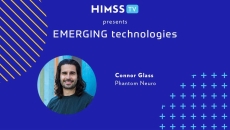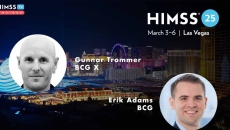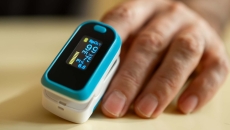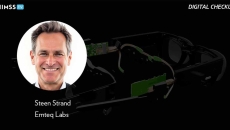medical devices
Dr. Erik Langhoff, chief medical officer and consultant for the Bronx Regional Health Information Organization, discusses how the agency is addressing safety and efficacy in AI.
The company intends to partner with healthcare, biopharmaceutical, medical device and diagnostic companies.
Connor Glass, founder and CEO of Phantom Neuro, explains how the company's muscle-machine interface for amputees is enabling the development of advanced prosthetic limbs designed to function as natural extensions of the human body.
The financing is in addition to a $1.8 million NIH grant for a Veris implantable physiological monitor.
HIMSS25
Gunnar Trommer of BCG X and Erik Adams of BCG give highlights of their upcoming HIMSS25 panel on the capital needed to develop and commercialize AI-powered medical devices and on completing regulatory milestones like 510(k) clearance.
The new draft guidance aims to help improve the accuracy of pulse oximeters in patients across the range of skin pigmentations.
The guidance recommends a PCCP describe the planned AI-DSF modifications, the associated methodology to develop, validate and implement them, and assess the impact of the changes.
Dr. Jay Anders, chief medical officer at Medicomp Systems, says it is necessary to slow down AI implementation due to a lack of transparency, AI not being trained on real-patient data and the potential implications of synthetic data use.
Steen Strand, CEO of Emteq Labs, discusses the company's launch of Sense, emotion-sensing eyewear that collects real-world data on a wearer's facial expressions and its potential use for healthcare data collection.
HIMSS24
Adam Chee, associate professor, National University of Singapore, discusses cybersecurity challenges facing healthcare organizations, including the inability to patch medical devices' vulnerabilities without their manufacturers' approval.








